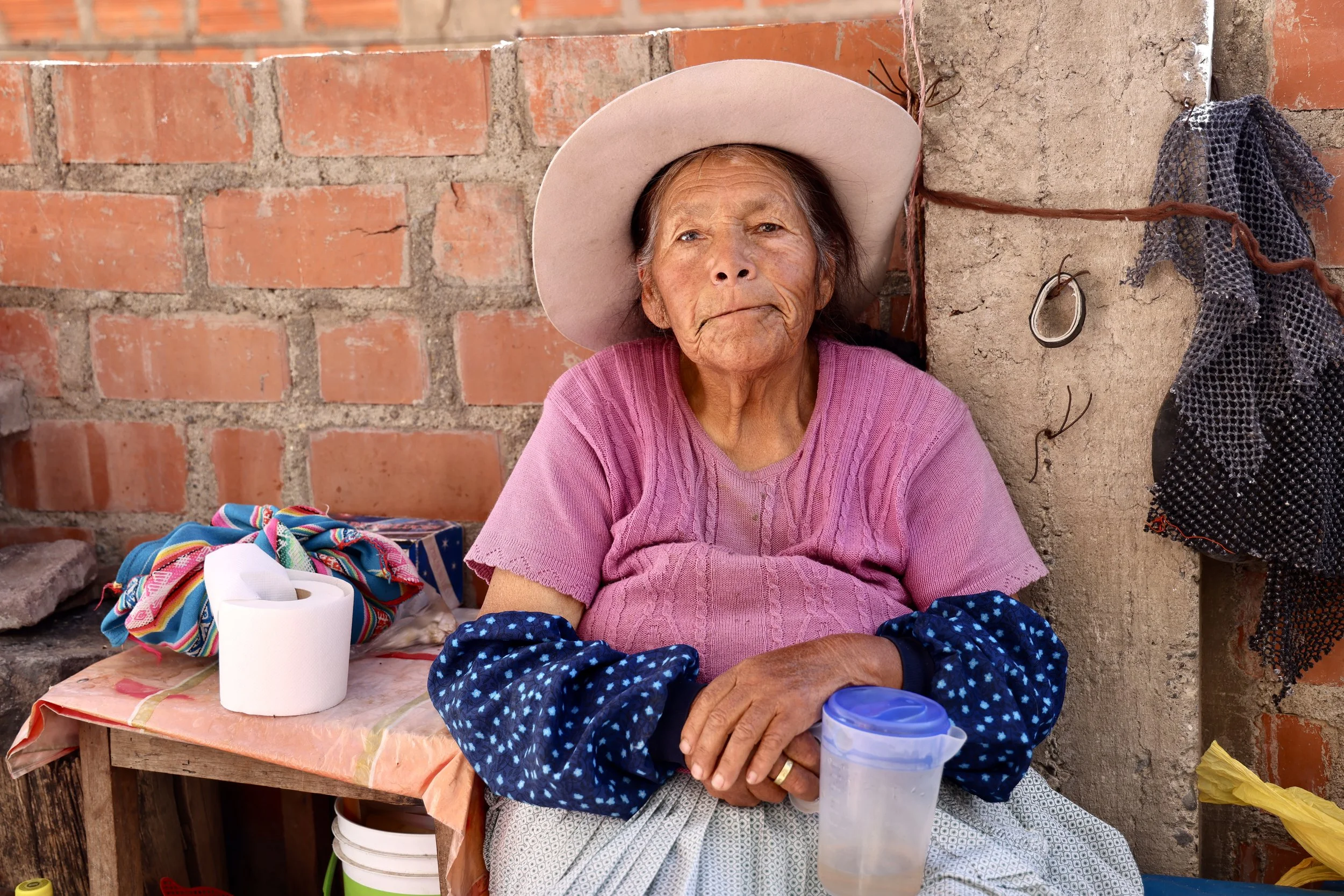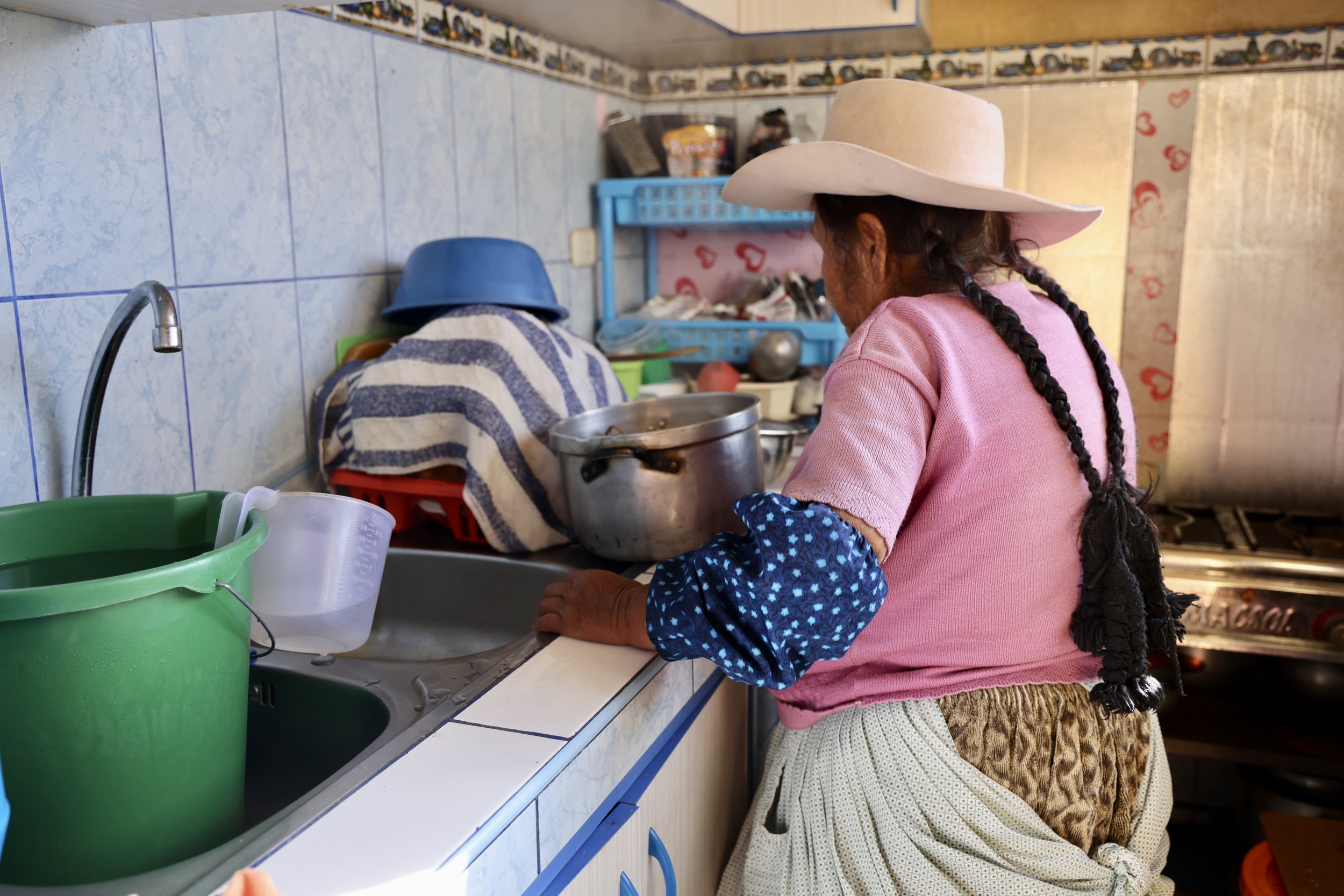Farmer Sebastiana
Sebastiana has not lived an easy life, with her journey taking her from Lima to Arequipa to Puno and places in between. Abandoned by her mother who left her family for another man when she was just a girl, Sebastiana looks back on her childhood with sorrow for what she lost and what her family endured. Her father had no land and little to no money to raise Sebastiana and her siblings, so they were all expected to work. At the time, some men in Peru, particularly Indigenous men, were the subject of little to no pay for agrarian work they provided, disturbingly similar to what one can describe as a form indentured servitude. Her father was one of these workers. With her father working the fields, Sebastiana was not able to get a proper education and dedicated herself to agriculture. It was a way of life for all of them, and a way for them to grow and nurture their own sustenance despite their financial troubles.
Sebastiana met her husband when she was 18 years old, and learned she was expecting her first child that year. Because her husband was in the same working position as her father, Sebastiana continued her work in the fields while also taking care of the home. Once they had their first child, they moved into her husband’s parents’ home where they both continued to work. Prior to the agrarian reform policies in the 1970s that worked to give more land, independence, and opportunity to small scale family farmers, there were little to no stable long-term opportunities for the many that did not own their own land. As such, Sebastiana, her husband, and their growing family spent much of those years taking jobs throughout Peru to help pay their expenses. ___ kept working in the farm, and Sebastiana’s jobs would shift from working in the land to being a housekeeper and making and selling any food she could for a profit. Sebastiana’s biggest responsibility: raising her children. As Peru’s agricultural reform was taking shape, more crops like ___ were now more readily accessible and introduced to regions that did not preciously have them.
“It’s more work for us women.”
Life in Puno
In the 1980s, Sebastiana and her family moved to Puno where her husband was able to take a job with the Department of Agriculture. During this time, Peru was experiencing was is now referred to as “The Lost Decade”, as the country faced a severe economic crisis. With the turmoil around them, the family was grateful to have employment, but they still struggled. Sebastiana continued to support both in the terreno (land), working odd jobs, and taking care of their home and children. Sebastiana and her husband were able to purchase a piece of land on the side of a hill in Puno that at the time was deserted. Today, this part of Puno is urbanized, and Sebastiana and her husband live in the home they built on that plot of land, and they’ve chosen to retire here.
The hill where Sebastiana and her husband purchased some land, where they’ve since built a home.
Sebastiana and her husband with their granddaughter Stephanie in their home.
Their granddaughter Stephanie lives in Puno and is able to visit them often and support them whenever she can. Stephanie is currently working on wrapping up her university degree, and became a recent mother in early 2025. It’s Stephanie’s first child, and Sebastiana and her husband are overjoyed to have a great-grandchild live so close to them.
Machismo - liFE AS A WOMAN
Sebastiana has dealt with machismo, sexism, her whole life, as a product of what she saw and the world around her. When she and her husband were starting a family, there was the unspoken expectation of Sebastiana continuing to bring income to her family where she could, while also keeping the home and caring for the children. The males in Sebastiana’s generation were not expected to know anything about cooking or anything in the home. Sebastiana even pointed out that her husband has never cooked or done laundry in his life, and was never and never will be expected to. Life was tough for Sebastiana, and she attributes a lot of her hardships to being a woman in a male dominated world.
Language & Identity
Sebastiana is saddened by the cultural changes she’s witnessed over the past couple of years. Nowadays, younger generations no longer speak Quechua, which is a huge part of Sebastiana’s identity and cultural ties. Sebastiana laments life at the campo, the fields, as well. As fond as she is of her experiences in the farms growing up, she no longer wants to return to the campo because it’s no longer what it was. People no longer greet each other, the weather is changing, and modern technologies like cars and kitchen technologies have made the campo another place straying further from their Indigenous culture in Sebastiana’s eyes.






